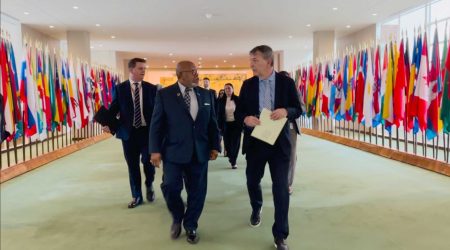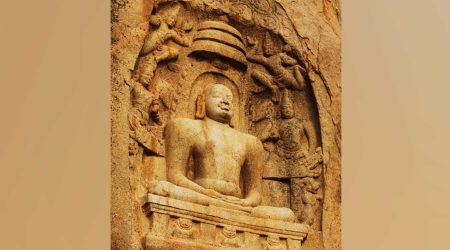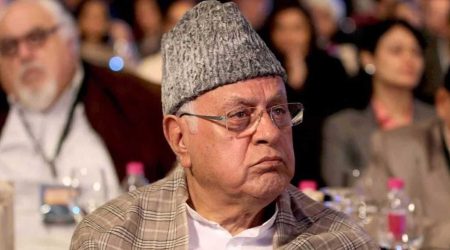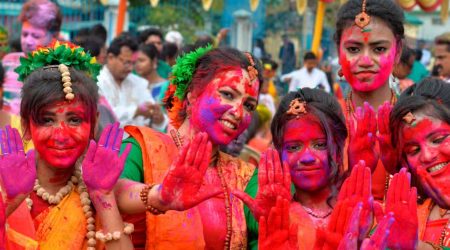By Vipul Tamhane
Amidst the fervor of the 2024 national elections in India, the global Indian diaspora, particularly the non-resident Indians residing outside the nation, are actively engaging in shaping political discourse. Nowhere is this influence more palpable than in the United States, boasting the largest Indian population beyond India’s borders. With nearly 5 million Americans of Indian heritage, predominantly first and second-generation immigrants, their impact reverberates across various spheres, including politics, business, and media.
Notably, individuals like Vice President Kamala Harris, with her Indian lineage, underscore the diaspora’s significance in American politics. Additionally, the presence of diasporic Indians in influential positions within tech giants like Google and Microsoft, alongside representation in leading media outlets and think tanks, amplifies their capacity to articulate global perspectives on Indian affairs. As the elections unfold, their voices resonate, bridging continents in the discourse of democracy and governance.
The significance of the Indian American diaspora in Indian politics extends beyond mere demographic numbers. As recent immigrants or children of immigrants, their strong ties to their ancestral land keep them deeply engaged in its affairs. With instant communication and abundant media access, staying connected to India in real-time has become effortless. Moreover, the United States’ status as a global powerhouse amplifies the influence of voices from its Indian community on Indian politics. Critiques or endorsements of Indian policies originating from the U.S. resonate louder within India’s political discourse than those from any other nation, further underlining the diaspora’s pivotal role in shaping the country’s political landscape.
The interconnection between the Indian American diaspora, particularly first-generation immigrants, and Indian politics is undeniable. Prime Minister Narendra Modi, representing the right-wing Bharatiya Janata Party (BJP), garners significant support among Indian Americans, with 48 percent approval and 31 percent disapproval ratings. Modi’s rallies in the United States, notably the 2019 Texas event attended by then-President Donald Trump, amplify this support. Both major Indian parties, BJP and Indian National Congress (INC), maintain branches in the U.S., influencing funding, campaigning, and India’s global outreach.
The BJP’s Overseas Friends of the BJP outweighs the INC’s equivalent, boasting superior organization and funding. Notably, it dispatched over 3,000 Indian American volunteers to India, aiding in poster campaigns and phone calls, as reported by The Economist. However, while diaspora fundraising efforts hold significance, they remain supplementary rather than decisive in India’s electoral dynamics. The complex socio-political landscape within India transcends the influence of overseas support groups, shaping the country’s electoral outcomes through a multitude of factors.
The Indian diaspora in the U.S. represents a specific demographic subset, largely comprising affluent, well-educated, English-proficient, liberal, and non-religious individuals. This community diverges from the religious composition of India, with Hindus forming only 51 percent, significantly lower than their 80 percent representation in India. Conversely, Muslims, Christians, and Sikhs constitute notable proportions, surpassing their shares in the Indian population. Many Indian Americans hail from regions in India less supportive of the BJP, indicating lower allegiance to the party compared to the average Hindu Indian. Furthermore, the U.S. hosts politically active Muslim and Sikh factions critical of the Indian government, a stance often challenging to express within India itself. Some Sikh groups advocate separatism, posing a significant challenge for Indian authorities. This dynamic underscores the nuanced relationship between the Indian diaspora in the U.S. and their engagement with Indian politics, influenced by diverse socio-cultural factors and transnational perspectives.
The electoral participation of diaspora groups in Indian elections is limited to Indian citizens voting in person. The engagement of Indian Americans in Indian politics is projected to evolve during the next generation. As a second-generation Indian American, I’ve observed minimal interest and knowledge in Indian affairs among peers, except within certain circles focused on journalism, development, or international relations. While second-generation individuals feel a closer affinity to aspects like cuisine, popular culture, and occasionally religion, political matters not directly affecting them garner less attention. Despite the overall waning interest, specific segments like activists and politicians wield considerable influence on India-U.S. relations. Thus, while broader engagement in Indian politics may decline among second-generation Indians, targeted initiatives by influential groups can still shape bilateral ties significantly.
PM Modi has strategically cultivated relationships with both Republicans and Democrats in the U.S., fostering deepening Indo-American ties under both the Trump and Biden administrations. Indian American college students, particularly those inclined towards politics, often assimilate into prevailing campus ideologies, typically progressive. Supported by peers and professors, those engaging with India academically tend to approach its sociopolitical issues from a left-leaning perspective.
Despite their liberal leanings within the American political landscape, many Indian American lawmakers maintain neutral or supportive stances towards India’s BJP government. For instance, in 2022, when Representative Ilhan Omar introduced a bill criticizing India’s religious freedom policies, no Indian American members of Congress backed it. Conversely, in 2023, Democratic Representative Ro Khanna from California extended an invitation to Prime Minister Modi to address the U.S. Congress, garnering bipartisan support. This exemplifies how Indian American politicians wield influence in shaping bilateral relations, bridging the gap between the two nations’ political landscapes.
Many Indian American representatives refrained from signing a letter alleging human rights erosion in India, signaling their reluctance to endorse such claims. Democratic Representative Shri Thanedar of Michigan’s proposal for a Congressional Hindu, Buddhist, Sikh, and Jain American Caucus underscores the community’s diverse advocacy efforts, including support for Israel.
Promoting stronger ties between the U.S., Israel, and India remains a prevalent theme among Indian American politicians, regardless of other political affiliations. While first-generation Indian Americans maintain strong ties to India and its politics, the growing population of second, third, and fourth generation individuals reflects the community’s assimilation into American society. As the United States continues to attract millions of immigrants from India, the demographic shift will likely shape the trajectory of Indian American political engagement in the years to come.
While not as deeply entrenched in Indian politics as their forebears, the succeeding generations of Indian Americans remain instrumental in fostering robust people-to-people and nation-to-nation ties between the U.S. and India. Their advocacy contributes to continued military and economic cooperation, mitigating criticisms and ensuring sustained bilateral relations. The Indian diaspora in the United States, together with the fundraising efforts of first-generation immigrants, is a tremendous asset to the BJP and Narendra Modi.
Policies incentivizing investment and discouraging rights-based criticisms benefit the party, although the overall impact on elections is expected to be marginal. Nonetheless, their collective efforts reinforce the enduring partnership between the two nations, cementing their position as key stakeholders in shaping the trajectory of U.S.-India relations.
As the echoes of India’s 2024 national elections reverberate throughout the world, the indomitable spirit of the Indian diaspora, spanning countries and generations, serves as a tribute to our enduring dedication to our country.
As we traverse the intricacies of current politics and societal dynamics, remember that our path is guided by the principles instilled in us by our forefathers. Let us press on with drive and resilience, working together to create a brighter world for future generations.
—————————–

Vipul Tamhane is a counter terrorism expert and a visiting faculty with Pune University (SPPU) at Dept. of Defense and Strategic Studies (DDSS). He is also founder and Editor-in-Chief at Diplomacy Direct, a public interest Think Tank based in India.
Disclaimer: The views expressed are not necessarily those of The South Asian Times









